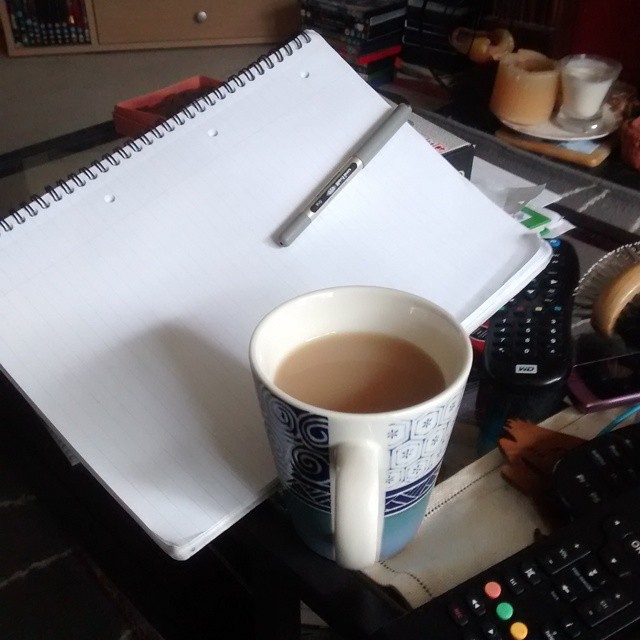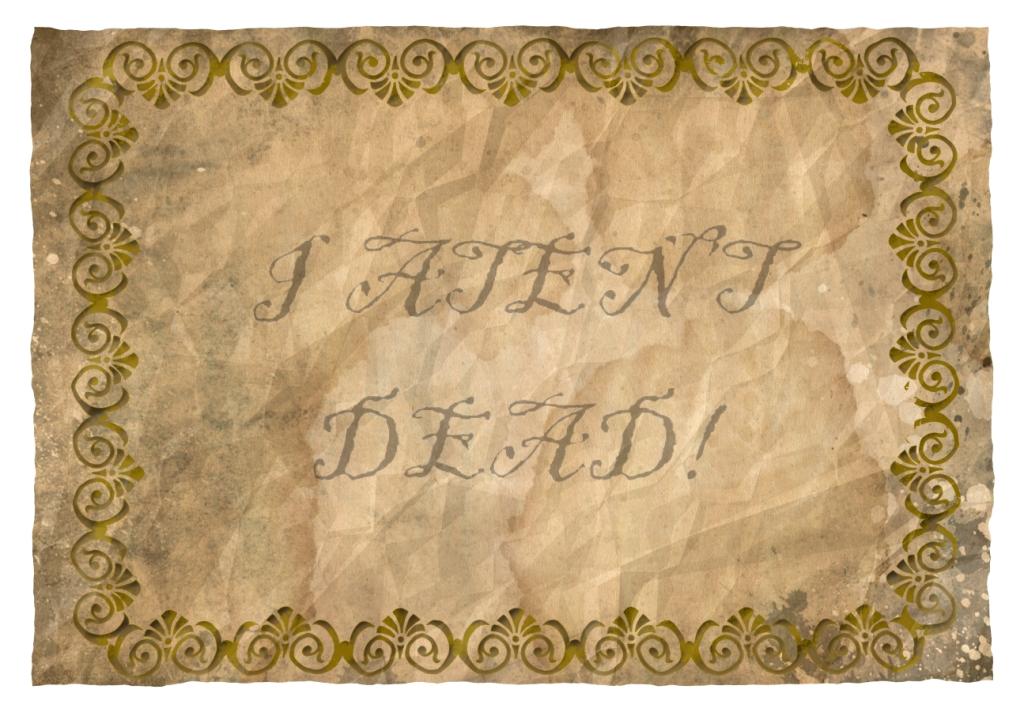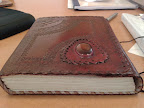That is the question, to paraphrase a certain Danish Prince of questionable sanity.
I’m not what you would call a plotter. (Not when it comes to writing anyway). And yet on occassion I will do it. It all depends on the story I am sitting down to write. So yes, this is a writing post. Otherwise known as a Ruth meanders through a blog post hopefully, eventually reaching some sort of conclusion before she gets bored and wanders away.
Whether you are a plotter or a pantser(1) is one of those questions that always seems to come up when writers get into conversations. Most people have an opinion on it, some of them quite vehement. I’ve seen Pantsers turn white at the mention of 3 act structure and Characters sheets. I’ve seen Plotters cross themselves at the thought of setting out to write without doing all of this and more first(2).
So what is the difference? Well, for me (because as always I can only answer for myself) I actually do a bit of both. I think it comes down to whether you are a writer who likes to mull over a story in detail before actually writing, to let it ferment and grown in your mind, let those various plotbunnies join together and do their thing, or the type of writer who likes to work all this out in a more structured way – putting it down on paper (or in pixels(3)) beforehand and mapping it out.
Here is my theory. You can repeat it, copy it, whatever – Both these type of writers are DOING THE SAME THING. But while one of them is doing it on paper, the other is doing it in their head. (my inner 10 year old is smirking).
When a Pantser talks about a character that won’t tell her why he’s doing the dasterdly thing he is no doubt doing, it isn’t actually because the voices in her head are laughing at her(4) but rather because she hasn’t yet made the mental link between the character and his motivation. At the same time, elsewhere in the city, a plotter is staring at a stubborn character sheet trying to work out how to link those two scenes in a way that follows narrative logic.
THE SAME THING. DIFFERENT WAYS OF DOING IT.
Once again we’re back to the idea that there are many rules when it comes to writing. Take the ones that work, throw the rest away. If you like to write it all down, do it. If you like to wander around muttering to yourself, get some professional advice that’s fine too.
I plant. Not in the garden. Ok, in the garden as well, but not for writing purposes. I both plot and pants it. The process runs something like this. I am mugged by a plotbunny. I write it down in my notebook. Another one joins it, then a few more and they have a party in my head. I write all this down. Some time later I go back to it and discover it isn’t entirely crazy(5). I start to sketch out ideas. I walk away. I read. I research. I mull things over. I have ideas. Because I have a brain like a sieve, I must write these ideas down or they will be GONE FOREVER. There is nothing worse than that perfect, shining, beautiful idea which occurs at 3am or in the shower, when you cannot write it down. There are notebooks everywhere in my house. I am slightly obsessed with them.
And then, because if I poke an idea for too long without doing anything it loses its lustre, I start writing. I might not get very far. But at this point I need to get to know these people, need to explore their world as they see it. I need to immerse myself in the story. In doing so I will probably (usually) stray far away from the original plan, but that doesn’t matter. It’s not really a plot. It’s more like guidelines.
Then I’ll gradually run out of steam. And return to the notes. I’ll rewrite them. Maybe just a scene or two to come, maybe the whole thing. Every book is different. But once I know where I’m going again, I’ll set off once more. Slowly, we edge towards the end. But we do get there. (6)
So when looking at different ways to write remember that there is no one or the other. You can be both a plotter and a pantser, you can mingle the two if needs be. And just because one story works that way, doesn’t mean the next one will. Let the story guide you. Allow yourself the flexibility to try new things. And always, ALWAYS, have fun with it.
Just to remind everyone this is the last day to enter the 100 day giveaway for an ARC of THE TREACHERY OF BEAUTIFUL THINGS. I’ll be picking a winner tonight!
And now I’m off to have fun.
—-
1. Pantser – one who writes by the seat of their pants, i.e. makes it up as they go along
2. Not really.
3. Pixels always make me think of pixies. I have an interesting mental image of the inner workings of a computer.
4. Well, probably not…
5. Notice, I qualified that.
6. “We” are the characters and I. We are now best friends. Best friends I torture, drown and chop up. It’s a unique relationship.
 I am not well-read. Not in the traditional sense. I have an English literature degree. I love to read. I take pleasure in books of all kind from their physical form to the wonders inside. But I am not well-read.
I am not well-read. Not in the traditional sense. I have an English literature degree. I love to read. I take pleasure in books of all kind from their physical form to the wonders inside. But I am not well-read.


 Well, recovery is one thing, but the website is all recovered from the nasty hacking (that was my most unfun thing possibly forever and totally ruined my watching of Endeavour, not to mention a couple weeks afterwards) and I’ve been something of a naughty author not updating my blog very much. Alternately, I’ve been a very good writer because I have been writing.
Well, recovery is one thing, but the website is all recovered from the nasty hacking (that was my most unfun thing possibly forever and totally ruined my watching of Endeavour, not to mention a couple weeks afterwards) and I’ve been something of a naughty author not updating my blog very much. Alternately, I’ve been a very good writer because I have been writing. 
